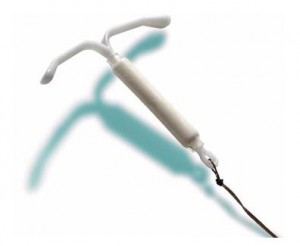FREE MIRENA CASE EVALUATIONS: CALL 1-800-632-1404
Our team of attorneys are now investigating claims and prepared to file Mirena lawsuitsinvolving the intrauterine contraceptive device Mirena®. Manufactured by Bayer Healthcare Pharmaceuticals, Inc., Mirena is an IUD device [intrauterine device] that must be inserted by a trained health care provider and is intended to provide contraceptive protection for up to five years. Some women have experienced serious adverse side-effects and potentially life-threatening complications following the implantation of theMirena device, including perforation of or imbedment in the uterus.
Mirena May Cause Uterine Perforation
Mirena is alleged to have many side effects. Mirena is an interuterine contraceptive device {IUD}. As a Mirena attorney that wants to provide information to women or their loved ones about making a Mirena claim or to discuss a Mirena lawsuit, Mirena has its own side effects. One such side effect is perforation of the cervix.
Very rarely during insertion, the Mirena device can result in uterine perforation. If this happens, the device is removed, and typically the uterus heals with no problems. Sometimes in cases of perforation, the device moves into the abdominal cavity or becomes embedded in the wall of the uterus; it would then have to be removed surgically.
Uterine Perforation
Uterine perforation or perforation of the uterus is a complication of the intrauterine devices such as the Mirena. It can happen at the time of insertion of the Mirena device. During the insertion, the device can get displaced and move into the uterus. Once in the uterus, it can perforate the uterine wall and can get embedded in the abdomen. Sometimes the device can perforate the uterus even after the insertion. Many women who experience uterine perforation do not realize that their uterus has been perforation until follow-up examination when it is determined that the threads of the Mirena device are missing.
Perforation of Uterus Surgery
Minor perforations close up on their own, but in some cases they can cause bleeding or damage to other internal organs. If so, surgery may be required.
Perforation of the bladder
Sometimes if the device perforates the uterine walls, it can perforate the bladder. Perforation of the bladder can lead to a number of other complications. Often the patient will have to undergo surgery to repair the perforation.
Damage to the omentum
A uterine perforation can also result in damage to the omentum. Shaped like an apron the omentum consists of fat with a rich blood supply and is itself covered with peritoneum. The omentum hangs down from the stomach and large intestine and its lower part is free to move about in the space between the intra abdominal organs and the abdominal wall. The role of the omentum is to act as a fat store and to help limit infections in the abdominal cavity by sticking to whatever area may be affected and so isolating the area to some degree. Damage to the omentum can result in infections in the abdominal cavity.
FOR A FREE CASE EVALUATION:
CALL TOLL FREE: (800) 632-1404
EMAIL: clicking here.
FILL OUT THIS FORM FOR FREE HELP:
NOTE: Our team of attorneys will review potential cases for all fifty states, including Alabama Alaska Arizona Arkansas California Colorado Connecticut Delaware Florida Georgia Hawaii Idaho Illinois Indiana Iowa Kansas Kentucky Louisiana Maine Maryland Massachusetts Michigan Minnesota Mississippi Missouri Montana Nebraska Nevada New Hampshire New Jersey New Mexico New York North Carolina North Dakota Ohio Oklahoma Oregon Pennsylvania Rhode Island South Carolina South Dakota Tennessee Texas Utah Vermont Virginia Washington West Virginia Wisconsin and Wyoming.
